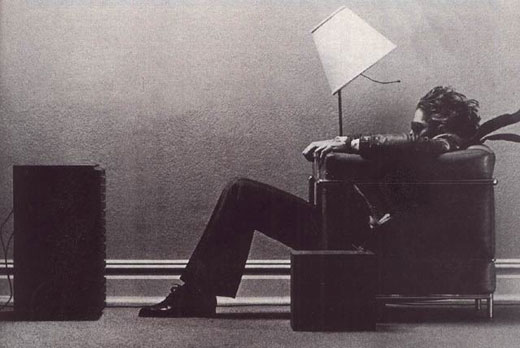Loud Volume and Hearing Safety Addressed
Brendan Prout
(Originally Written 10/3/13)
If you’ve gone to a service at any church I’ve led at, it’s possible that at some point you might have noticed our music can get pretty loud. For some people this seems like a good thing, and for others, not so much. Some might even worry that their hearing could be damaged.
In light of this, we’ll address the safety issue first so you can rest easy, and then we’ll talk through the biblical underpinnings of why we sometimes get loud.
Is it safe?
The Occupational Safety and Health Administration (OSHA) standards state that the average person can experience hearing loss when subjected to a continuous 85 decibels for eight hours. This is the equivalent of standing next to an idling bulldozer or your kitchen blender. At 95 decibels you can experience hearing loss after four continuous hours. If you mow the lawn with a gas mower, you have about 40 minutes before you can expect hearing loss from the 107 decibels that it produces. We know these standards, and we are very careful to adhere to these standards.
A typical church service runs a little over 90 minutes, but let’s just round up to two hours to be safe. The audio could be sustained at 100 decibels for that length of time before the chance of hearing loss. But, we never come even close to running consistently at that level. We are consistently checking levels during our services, and we rarely if ever hit 100 decibels, and if we do, it’s only a spike for a second or two. The bottom line is that we care about the safety of the people in our gatherings, and we want to assure you that there is no chance of hearing damage for anyone attending of any age.
If this is so, then why do people still complain? For one, some people have more sensitive hearing than others, which is why we may want to always have earplugs available at each church for anyone who might want them. Another issue is that certain frequencies can sound harsher than others. While technically it is the same decibel level and in no way damaging to anyone’s ears, it can be a distraction when the mix is harsh and it is something we work to avoid by training our volunteers and fixing equipment when necessary.
Is it biblical?
Now, why do we mix it loud at all? While we don’t believe that music at church must always be loud, there is scriptural support for the idea that it often should be. Here is why:
“Sing to him a new song;
play skillfully on the strings, with loud shouts.”
Psalm 33:3
“Praise him with trumpet sound;
praise him with lute and harp!
Praise him with tambourine and dance;
praise him with strings and pipe!
Praise him with sounding cymbals;
praise him with loud clashing cymbals!
Let everything that has breath praise the Lord! Praise the Lord!”
Psalm 150:3–6
“David also commanded the chiefs of the Levites to appoint their brothers as the singers who should play loudly on musical instruments, on harps and lyres and cymbals, to raise sounds of joy.”
1 Chron. 15:16
Now, while we might have added a few instruments to the list, the general vibe remains the same. We have a big God, and to praise him appropriately, we might just need to make a big sound.
The idea that worship music should only be quiet and contemplative is simply not biblical. We have a lot of freedom to worship God in a variety of ways through music, and we see this expressed in scripture, from an impromptu tambourine jam on the shore of the Red Sea (Ex. 15:19–21), to a huge dance party in the streets of Jerusalem (1 Chron. 15:16–28), and a couple of saints singing midnight hymns in prison (Acts 16:25). When we get to heaven, the multitudes of angels and all the redeemed will raise their voice and cry out together to praise the Lamb who was slain. This will not be a quiet sound (Rev. 19:1–3).
Take joy and celebrate
Until then, we worship in less stellar circumstances, often with broken equipment, new volunteers, guitars that go out of tune, and a million other distractions. But in the midst of all of that, I pray we can take joy with the Psalmists in praising our God with loud shouts of joy, and quiet times as well.
The main reason that the music is loud at our churches on Sundays is we are gathered together to celebrate and proclaim our salvation through the work of Jesus. When people want to celebrate, they throw a party. And when people throw a party, they play loud music and dance. And because, as Christians, we have much to celebrate, most Sundays at church will be more like wedding receptions than funerals.

 RSS Feed
RSS Feed
